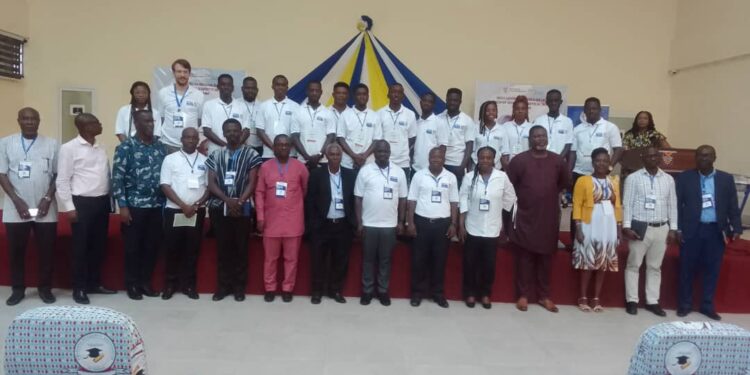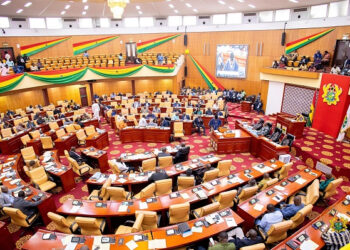The University of Cape Coast (UCC) has hosted a high-level academia-based launch of statsbank which saw the unveiling of the Ghana Statistical Service StatsBank.
The main goal of the launch was to raise awareness in the university community of the availability of Census data in the Statsbank.
It was also purposed to foster stronger cooperation between the GSS, academic institutions and key strategic institutions in industry, public sector, civil society, and the development partner community.
Speaking at the launch, the Head of Department of Population and Health, Professor Kobina Esia Donkor indicated that the Ghana Statistical Service must be applauded for this new innovation which he believes is going to help track developmental processes.
She said data has become the most important developmental tool for every nation and as such, the Statsbank created by the Ghana Safe Council is led by the government statisticians to make available data to all in summary.
“And I believe we will clap for Ghana the Statsbank which is a platform that all persons, all students, policymakers can have access to free data and use that to track developmental processes, particularly the Sustainable Development Goals and even the Agenda 2063” she emphasized.
On his part, the Government Statistician, Professor Samuel Kobina Annim stressed the essence of the StatsBank.
According to him, the essence of the statsbank is to promote the relevance and resourcefulness of data repositories.
“So, this is not going to be an online statistical bank that will be hosting only the census data, but henceforth all the data that we collect.”
“Why we are doing this is not just to have a stack of different data sets, but we are convinced that the complex challenges that we face as a country can only be resolved when we tackle it from a multi-data point of view by integrating different data sets. And that is the motivation for developing and launching the statistical online bank.”
At the launch, other data user-centred products were also introduced by the Ghana Statistical Service and these include the Data Census Atlas and the Rasterized Data.
Prof. Kobina Annim is optimistic these products will serve the needs of data users.
The products include a Digital Census Atlas or a Geo-Spacial Census Outlook. What these products do is give visuals based on the Ghana map on all the over three hundred and fifty thousand indicators that we developed from the 2021 Population and Housing census.
Another of the products is the rasterized data.
Prof Annim explained that they “really prioritize this because for the first time, we are providing detailed data beyond the districts, Ghana Statistical Service and all other agencies because of issues around confidentiality and anonymity has limited itself to data at the regional and the district level.”
He said the rasterized data is to help in giving further disaggregated data for every thousand-by-thousand-meter square that is in the country.
He added that the GSS has “enhanced our 10% micro-data access also with the hope that we will get both policymakers and academics to use the data that we’ve put out as Ghana Statistical Service.”
The high-level academia-based launch of statsbank was held under the auspices of the Ghana Statistical Service in collaboration with the Department of Population and Health at UCC and Statistics Denmark.
Source: Priscilla Loo/ATLFMNEWS


























